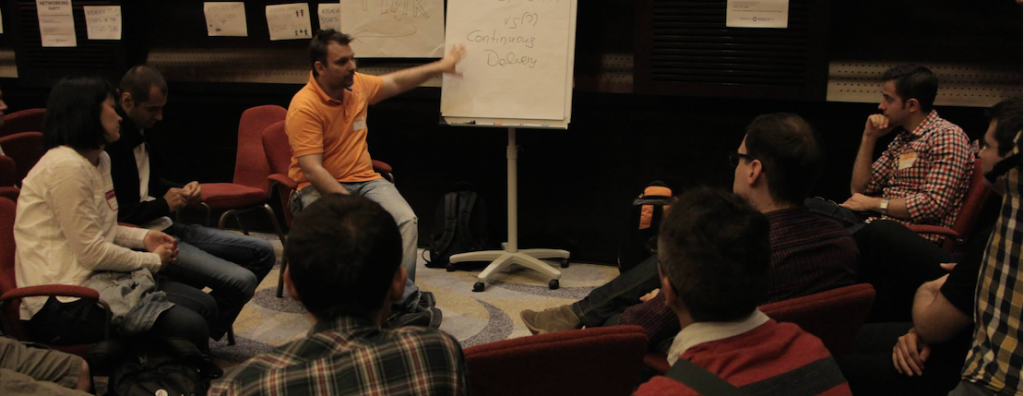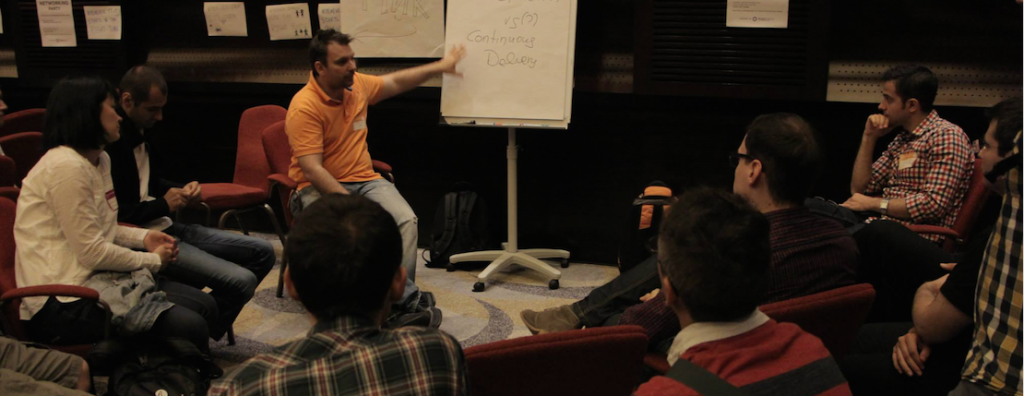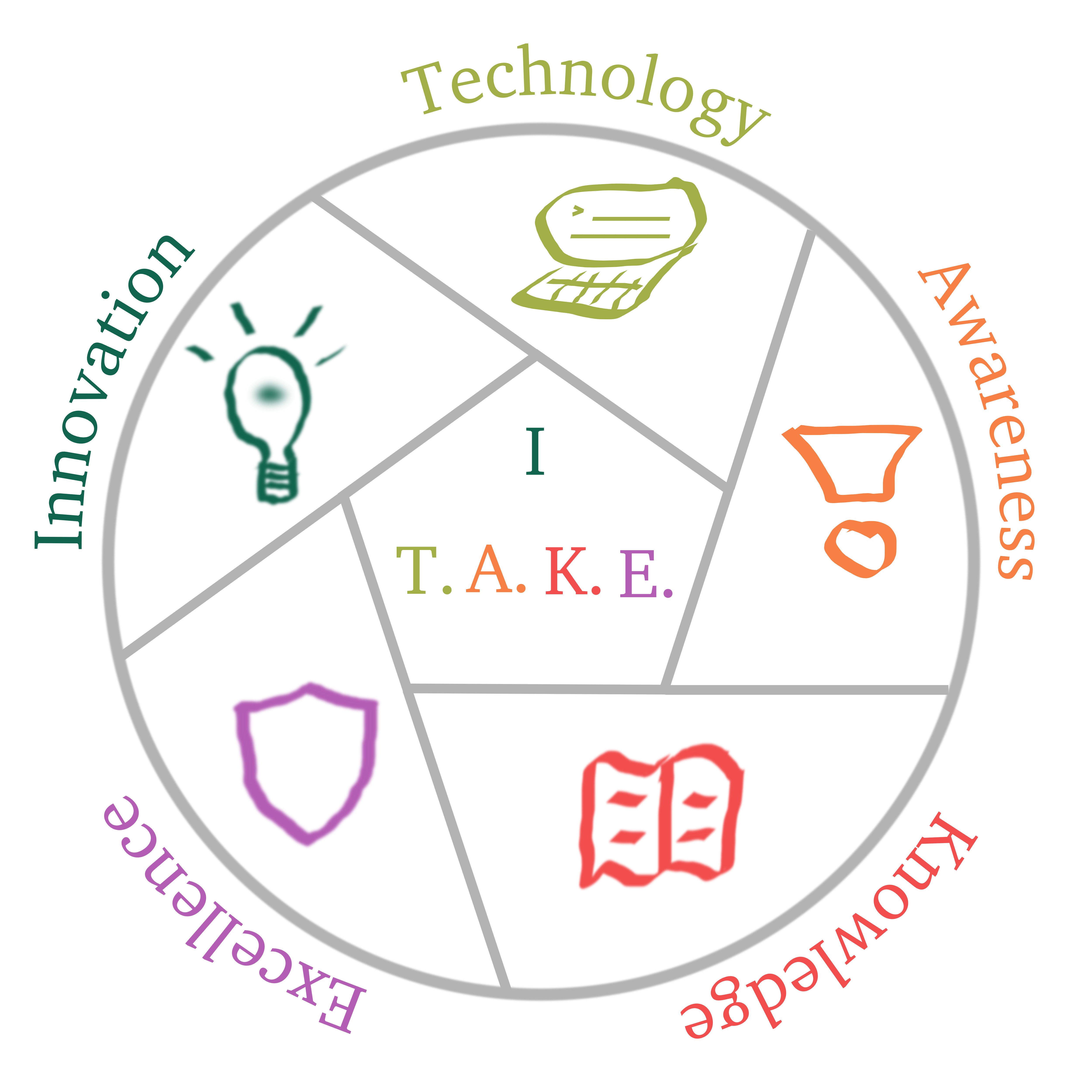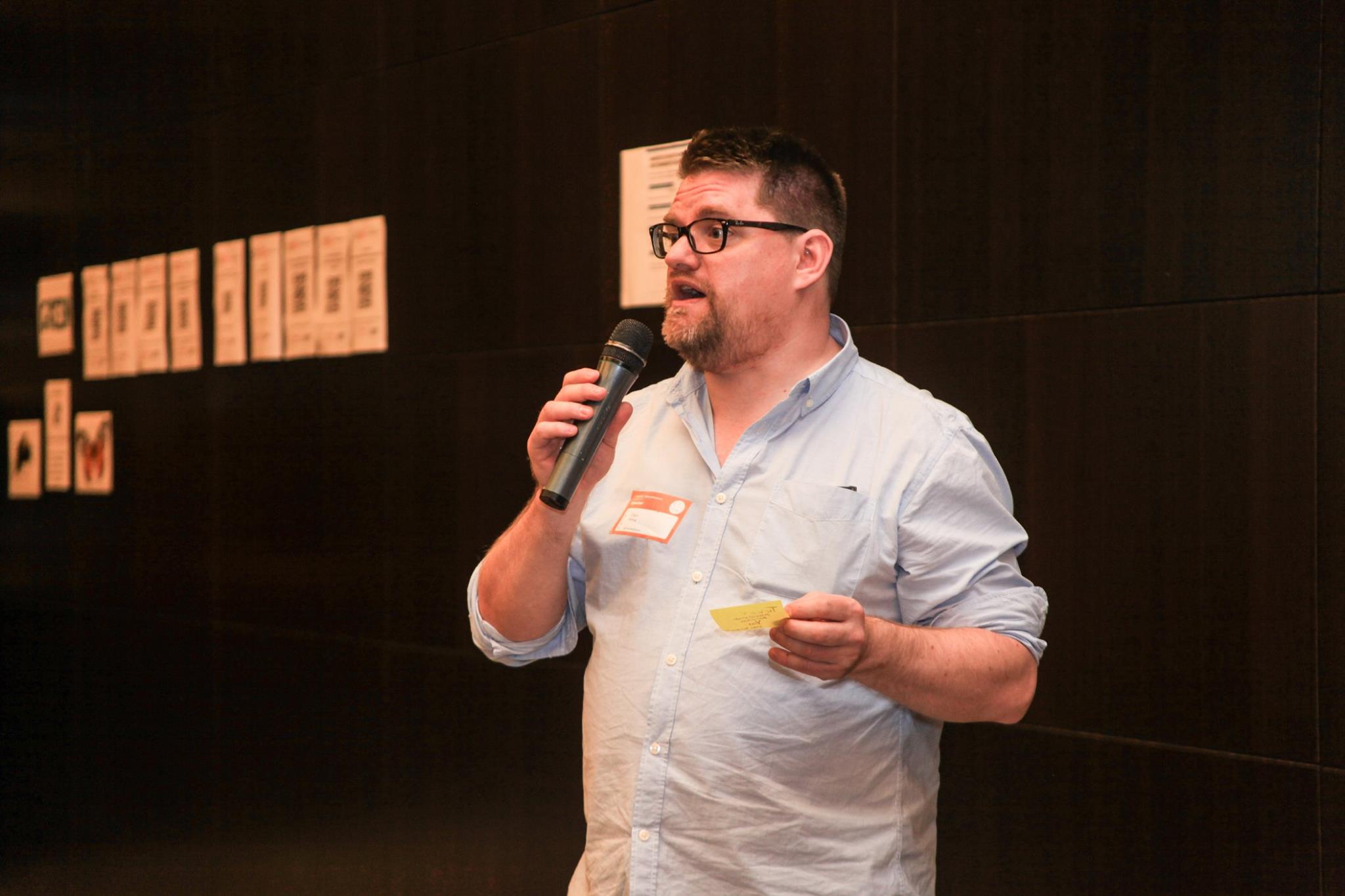
 Blog post by Patroklos Papapetrou, originally appeared on his blog. Republished with permission. Thanks Patroklos for your active participation during the unconference.
Blog post by Patroklos Papapetrou, originally appeared on his blog. Republished with permission. Thanks Patroklos for your active participation during the unconference.
ITAKE Unconference 2015 Retrospective
Last week I had the chance to attend both as a speaker and an attendee my first un-conference. Actually I would categorize ITAKE as a mix of conference and un-conference. The overall agenda and the way the event is structured is very intelligent and it makes people communicate more and exchange ideas in various ways. To be honest it’s the first event I attended where speakers and attendees are all together, writing code, pairing, solving problems while having dinner, discussing, listening and sharing knowledge. It doesn’t matter if you are a famous keynote speaker or a junior developer who just graduated from the university. Everyone can talk and discuss for every possible topic that interests you. Here are the “little” things I loved about ITAKE.
- Talk duration : 35′ including questions. Oh yes. No more endless talks with 50+ slides and audience looking at the windows or the watch ready to jump out of the room. In the beginning I was struggling to find which slides I could remove from my presentations but at the end I enjoyed so much my talks that I think I will always do the same even I have 50′ for my talks
- Small rooms : 40 people at most except the keynote sessions. The feeling that you get when you discuss ( not present ) your topic in front of 40 people in a very small room is awesome. People feel so free to ask questions during the talk and that’s why I regard it as discussion rather than talk. Besides when the room gets crowded and people are forced to stand up because there are no more seats, the feeling as a presenter is even better 😉
- The Venue : Amazing hotel, great organization, excellent food and coffee all two days in the center of the beautiful city of Bucharest.
- Open space : OK I have to admit. Before going to the event, I was very skeptical about the open-space part of ITAKE. How 250+ people will get organized in 20′ and discuss so many topics in a structured way? Well, if you want to know how it’s done, then book your calendar for next year’s ITAKE. 42 different topics were discussed in the different open space spots.

Our facilitator, Mike Sutton, was amazing. He literally moved us like puppets and from empty space we had a full of interest topics in just a few minutes.
My contribution:
- Holding down your technical debt with SonarQube : My oldie but Goldie talk squeezed in 35′

- How to boost development’s team speed : My newest mini-workshop. Amazing how many suggestions and ideas we exchanged with all the participants.
- Continuous Inspection as part of Continuous Deployment : Open space topic with tens of attendees and several side-topics came up to the “table” during the discussion
- Real-life stories from teams that moved from tradition deployment to cloud deployment : As expected, there were not that many stories but I learned a lot of stuff from people that are effectively using Amazon for the cloud infrastructure and deployments.
I had the chance to meet also all the organizers and the folks behind ITAKE un-conference. You rock guys and I’m pretty sure that the event will become better and better every day. Thank you for having me part of this year’s event and looking forward to seeing you around Europe in another (un-)conference.
Did you also attend the unconference? Are you curious what others said? People are talking about it on Twitter using the #itakeunconf hashtag.


